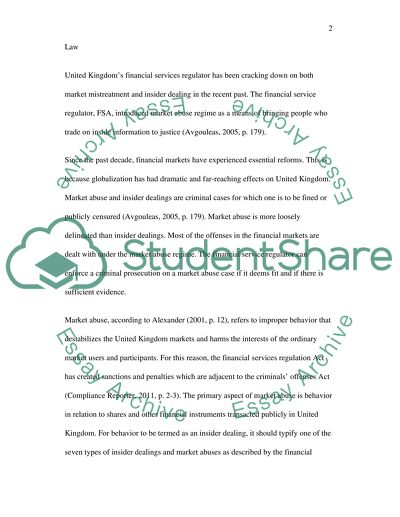Cite this document
(“Why does the UK financial services regulator take such a dim view of Essay”, n.d.)
Why does the UK financial services regulator take such a dim view of Essay. Retrieved from https://studentshare.org/law/1455089-why-does-the-uk-financial-services-regulator-take
Why does the UK financial services regulator take such a dim view of Essay. Retrieved from https://studentshare.org/law/1455089-why-does-the-uk-financial-services-regulator-take
(Why Does the UK Financial Services Regulator Take Such a Dim View of Essay)
Why Does the UK Financial Services Regulator Take Such a Dim View of Essay. https://studentshare.org/law/1455089-why-does-the-uk-financial-services-regulator-take.
Why Does the UK Financial Services Regulator Take Such a Dim View of Essay. https://studentshare.org/law/1455089-why-does-the-uk-financial-services-regulator-take.
“Why Does the UK Financial Services Regulator Take Such a Dim View of Essay”, n.d. https://studentshare.org/law/1455089-why-does-the-uk-financial-services-regulator-take.


